According to the FBI Crime Clock, violent crime is committed somewhere in the country every 26.2 seconds. Law enforcement officers put their lives on the line every day to protect the lives and properties of law-abiding citizens.
The method they use to achieve this depends on the agency they work for and the jurisdiction that governs the extent of their work. From federal agents to county sheriffs, the presence of law enforcement in communities all over the country plays a huge role in maintaining law and order to allow people to go about their business without a care in the world.
This guide explores who’s who in law enforcement so that you can tip your hat to them the next time you see them.
Law Enforcement Background
Law enforcement in the United States has come a long way from what it was back in the very early days. At the time of the country’s founding, law enforcement consisted primarily of volunteer groups and community-funded part-time officers.
Today there are more than 18,000 federal, state, and local law enforcement agencies that employ over 420,000 officers. Their role is to uphold the rule of law and public safety so that no citizen’s liberty is trampled upon.
What Is the Definition of Law Enforcement?
Law enforcement, which is one of three arms of the American criminal justice system – the other two being courts and corrections – is the entity that ensures all members of the society comply with the set rules, regulations, laws, standards, and social norms. There are essentially three types of law enforcement agencies:
- Local law enforcement, which includes the sheriff and police departments
- State law enforcement, which includes state or highway patrols
- Federal law enforcement, which includes federal agencies like the FBI and the Secret Service
Which Is the Largest Segment of Law Enforcement Today?
The three main components of law enforcement are federal, state, and local agencies. Agencies that operate at the local level form the largest segment of law enforcement today and include regional, tribal, county, and municipal police. Their primary role is to uphold the law, investigate crimes committed, and provide patrol within the jurisdiction.
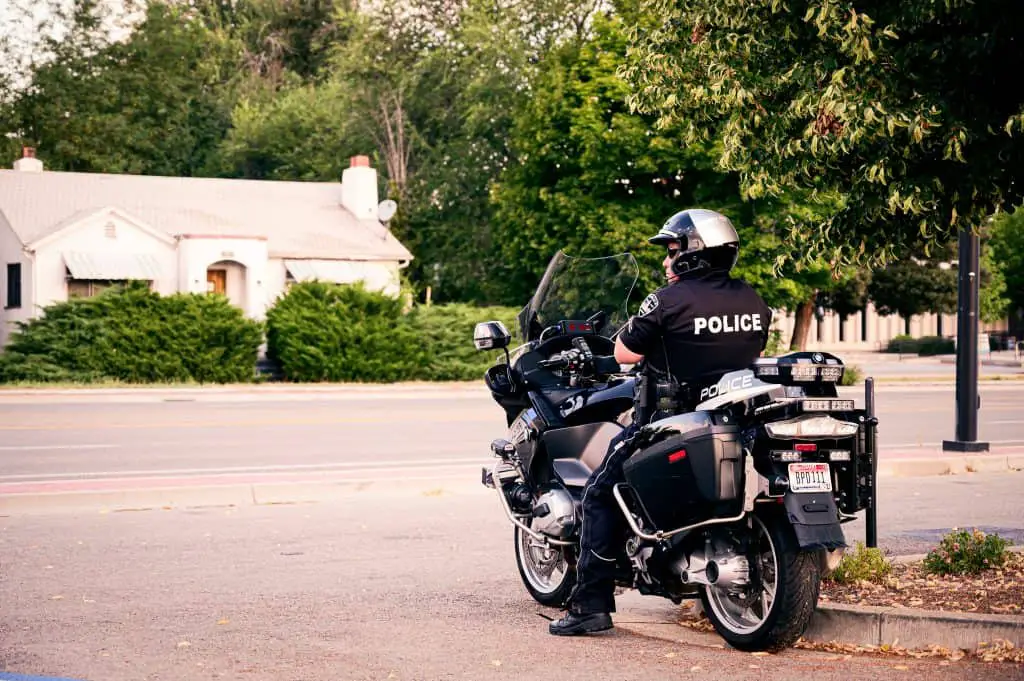
Which Branch of the Government Enforces Laws?
The federal government consists of three branches. There’s the executive which is headed by the President. Its role is to enforce laws. There’s the legislature known as Congress, which is the law-making arm of the government. Congress is made up of the Senate and the House of Representatives.
The third branch of the government is the Judiciary, which includes the United States Supreme Court and its nine Justices. The US Supreme Court is the highest court in the country and handles constitutional matters as well as splits among the country’s federal Circuit Courts. The criminal justice system, which comprises law enforcement, courts, and corrections, falls squarely under the executive branch.
Who Enforces What?
With that brief overview of what law enforcement is, it’s now time to break down what its different functions are. Here are the answers to some of the most frequently asked questions with regards to who enforces what.
Who Enforces International Law?
International law or “public international law” as it is commonly called, exists to regulate the activities and relations between different nations. It also details the rules governing the operations of international bodies like the United Nations (UN) and the state treatment of corporations, partnerships, associations, and individuals.
While local, state, and federal governments are charged with enforcing domestic laws, there isn’t any specific organization that enforces international law. The UN Security Council may pass certain policies authorizing enforcement. Still, their implementation poses a huge challenge since it requires member nations to provide resources – like military troops – to do this. This almost always never happens.
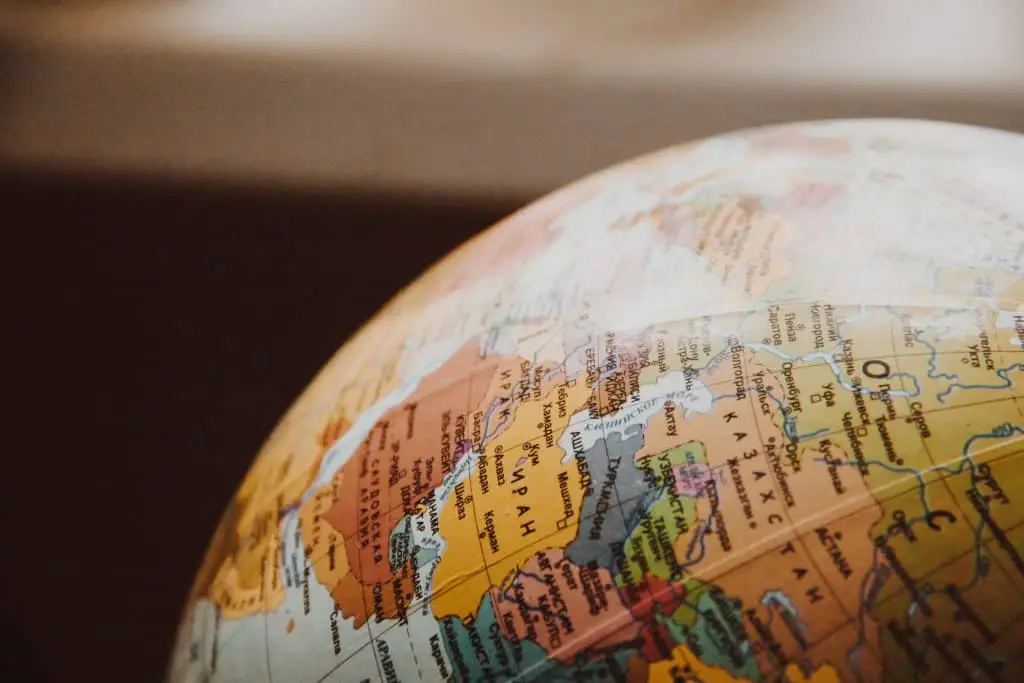
Who Enforces the Laws of the United States?
At the risk of stating the obvious, the role of law enforcement is to, well – enforce the law. It is one of the three main components of the US criminal justice system, which is made up of:
- Law enforcement agencies – These include sheriffs and their deputies, police, state and highway patrol, and federal agents. They are usually the first point of contact with offenders.
- Courts – These include judges, jurors, prosecutors, and defense attorneys. Their role is to ensure that the accused person gets a fair trial and that their rights are not violated.
- Corrections – These include corrections, parole, and probation officers. Their role is to ensure that convicted persons serve their sentences as stipulated by the courts.
The major functions of the police include law enforcement, citizen protection, crime prevention, and arrest of violators.
What Branch of Government Is Responsible for Enforcing Laws?
The executive arm of the government – which is headed by the President – is responsible for enforcing the laws created by Congress. The main components of this arm include:
- The President – who is the head of state, leader of the federal government, and Commander-in-Chief of the US armed forces.
- The Vice President – whose function is to support the President and step in if, for some reason, the President is unable to serve.
- The Cabinet – serves in an advisory capacity to the President. It is made up of the Vice President, the heads of the 15 executive departments in addition to other high ranking government officials.
- The federal agencies, committees, and commissions whose role is to carry out the day-to-day work of the executive.
Who Is Responsible for Enforcing Federal Laws?
The role of federal law enforcement agencies is to enforce federal law. These are organized under the Department of Justice and the Department of Homeland Security except for some independent agencies like the Central Intelligence Agency (CIA) and the US Postal Service. These all fall under the executive arm of the government and are responsible for law enforcement and the administration of justice at a federal level.
Does the President Enforce Laws?
You might be wondering, “Who is the chief law enforcement officer?” Who is at the helm of enforcing the laws of the land? If you guessed the President – you would be right!
The executive branch of the US government is charged with enforcing the laws enacted by Congress. The President is the head of the federal government. So it makes sense then that the power of the executive is vested solely in the President.
This means that he/she is responsible for implementing and enforcing laws. This power cascades down to all the different federal departments and respective agencies.
What Agency Was Placed in Charge of Enforcing Environmental Laws
The US Environmental Protection Agency (EPA) is a federal agency whose role is to protect both human and environmental health. It was formed in 1970 in response to the rising environmental concerns at the time. Its whose mandate includes:
- The conservation and protection of the natural environment
- The regulation of the manufacturing, processing and distribution industries besides setting limits on what would be considered safe tolerance levels for chemicals and other pollutants
- The enforcement of sanctions on individuals and corporations that flaunt the rules

Who Enforces Labor Laws?
The Department of Labor enforces the more-than-180 federal employment statutes currently in existence. These laws are defined in various Acts, including:
- Employee Retirement Income Security Act
- Fair Labor Standards Act
- Family and Medical Leave Act
- Occupational Safety and Health Act
The Equal Employment Opportunity Commission’s role is to enforce federal labor laws that make it illegal to discriminate against job candidates. These are detailed in:
- Age Discrimination Employment Act
- Americans with Disabilities Act
- Equal Pay Act
- Genetic Information Nondiscrimination Act
- Pregnancy Discrimination Act
- Title VII of the Civil Rights Act
The National Labor Relations Act is enforced by the National Relations Board.
Who Enforces Tax Laws?
All tax laws, including the infamous federal income tax code, are interpreted and enforced by the Internal Revenue Service (IRS) – a federal agency that falls under the Department of Treasury. Congress passes tax laws that determine who/what will be taxed and by how much, whereas the IRS implements and enforces this tax legislation.
Who Enforces Fair Housing Laws?
Fair housing laws are detailed in the Fair Housing Act. The Department of Housing and Urban Development is the federal agency charged with enforcing and implementing housing laws. It does this in two ways:
- The federal agency employs “fair housing testers” to pose as home buyers or renters to catch rogue landlords, real estate agents, and property owners in the Act.
- It investigates discrimination claims made by aggrieved individuals who believe that their rights have been violated under the Act.
Which Agency Enforces Minimum Wage Laws?
The Wage and Hour Division of the US Department of Labor enforces the federal minimum wage laws as stipulated in the Fair Labor Standards Act. While the federal government sets the lowest amount that an employee can be paid, localities and states can set their minimum wage rate too. However, this amount can never be below the federal rate.
Who Would Enforce a Leash Law?
Leash laws don’t exist at a federal level. They do, however, exist at local and/or state levels. These are enforced by the respective law enforcement, depending on the level at which the laws are defined. State-level leash laws are few and far between when compared to their local-level counterparts, although most states have Impound laws for dogs found roaming loose.

Who Enforces Immigration Laws in the US?
Immigration laws in the US are enforced through two federal agencies organized under the Department of Homeland Security. There’s the Customs and Border Protection agency, whose role is to enforce immigration laws at the US borders. There’s also the Immigration and Customs Enforcement, whose role is to enforce immigration laws in the rest of the country.
Which Governmental Agency Enforces Laws That Uphold Truth in Advertising?
The Federal Trade Commission (FTC) is the federal agency responsible for enforcing truth-in-advertising laws. These laws apply to all advertisements regardless of the media they appear in.
Online, newspapers, magazines, in-mail, and billboard ads are all governed by the same laws. Some of the actions that the FTC can take against errant parties include filing motions in the federal district court to:
- Bar fraudsters from partaking in similar scams in the future
- Freeze their assets
- Get compensation for victims of the fraudulent ads
- Permanently stop the scams
What Federal Agency Enforces All the Environmental Laws?
The US Environmental Protection Agency (EPA) is the independent federal body responsible for enforcing all the environmental laws and executive orders. Some of the notable statutes include:
- Atomic Energy Act
- Clean Air Act
- Clean Water Act
- Emergency Planning and Community Right-to-Know Act
- Energy Policy Act
- Federal Food, Drug and Cosmetic Act
- Protection of Children From Environmental Health Risks and Safety Risks Executive Order
- Oil Pollution Act
- Pollution Prevention Act
What Law Enforcement Agency Handles Human Trafficking?
Dealing with and investigating cases of human trafficking takes a multi-agency approach that is consists of tribal, local, state, and federal law enforcement agencies. Three task forces handle this:
- The Anti-Trafficking Coordination Team Initiative
- The Enhanced Collaborative Model Human Trafficking Program
- The FBI Child Exploitation and Human Trafficking Task Force
Who Enforces the Provisions of the Real Estate Law?
Real estate is confined to specific locations within the states. This is the reason why most of these laws are defined in the state- and not federal-level laws. Real estate State Departments are responsible for enforcing the provisions of real estate laws.
Who Enforces Health and Safety Law?
Health and safety law is defined in the Occupational Safety and Health Act (OSHA). The US Department of Labor is responsible for the implementation of the Act and the enforcement of standards in all 50 states of the US.
Some parts of the country, however, have OSHA-approved state agencies to help enforce health and safety standards in the workplace, provided the state-level guidelines are as stringent (if not more) as the federal provisions.

Which Federal Agency Enforces Sexual Harassment Laws?
Sexual harassment is a form of discrimination and goes against Title VII of the Civil Rights Act. The provisions of the Act apply to organizations that have 15 or more employees. The Equal Employment Opportunity Commission (EEOC) is the federal agency responsible for enforcing federal laws on sexual harassment as detailed in the Act.
Who Enforces Gun Control Laws?
Access to firearms is controlled by several federal laws and statutes, including the Gun Control Act (GCA).
These exist to regulate the possession, trade, transfer, transport, manufacture, and destruction of guns. The Federal Bureau of Alcohol, Tobacco, Firearms, and Explosives (ATF), in conjunction with state agencies, are responsible for enforcing the provisions of the GCA.

Who Enforces Smoking Laws?
The US Congress has not enacted any nationwide laws that prohibit smoking. The laws that exist to limit this activity are at jurisdictional-level and within occupational safety and health laws. Local and state law enforcement is responsible for enforcing the smoke-free rules that apply to bars, restaurants, and workplaces.
What Authorities Enforce Boating Laws?
The US Coast Guard division of the US armed forces is responsible for enforcing boating laws on federal waters. Federal maritime laws and their enforcement fall under the Department of Homeland Security. Local- or state-level law enforcement agencies are charged with enforcing the state-specific boating laws that exist within their respective jurisdictions.
Who Is Considered Law Enforcement?
What’s the difference between a police officer and a sheriff? Are all cops sheriffs? Are probation officers considered law enforcement?
These are some of the questions that plague the minds of many when it comes to figuring out who qualifies as a law enforcement officer and who doesn’t. This section puts an end to that debate once and for all.
Are Park Rangers Law Enforcement?
Yes, they are. They are employed by the National Park Service (NPS), which shares jurisdiction with the US Park Police (USPP) in select areas.
The USPP is a federal law enforcement agency within the Department of the Interior and is a full-service police department within the federal government. It also has state-level authority. Commissioned Park Rangers have been sworn-in as peace officers. This gives them the authority to enforce state and federal laws within NPS sites across the country.

Are Probation Officers Considered Law Enforcement?
Yes, but only if they are sworn in. When this happens, they are vested with police powers. This gives them the authority to enforce laws against probationers found to violate the law, conditions for release, and any other applicable court rules.
Is Detention Officer Considered Law Enforcement?
Yes and no – it depends on your perspective. In the strict sense of the law and outside the detention facility, these officers are not classified as law enforcement. However, they are an integral part of the criminal justice system.
However, they are, in a general sense, within the walls of the detention, “law enforcement” since they ensure that inmates in county jails abide by the rules of their incarceration.
Are CBP Officers Law Enforcement?
Yes, they are. Customs and Border Protection officers are employed by the largest federal law enforcement agency in the US – the US Customs and Border Protection agency.
Are Bail Bondsmen Law Enforcement?
No, they are not. A bail bondsman is an individual or company that acts as surety by pledging money or property to post bail for a defendant to appear in court. If they jump bail and contravene the terms of the surety agreement, law enforcement can issue an arrest warrant for the rogue defendant in question.
Are Federal Correctional Officers Law Enforcement?
No, they are not. A federal correctional officer works for the Federal Bureau of Prisons. Their duties are limited to enforcing the rules and regulations of the correctional facility. They do not carry the power to arrest civilians flouting the law outside the facility.
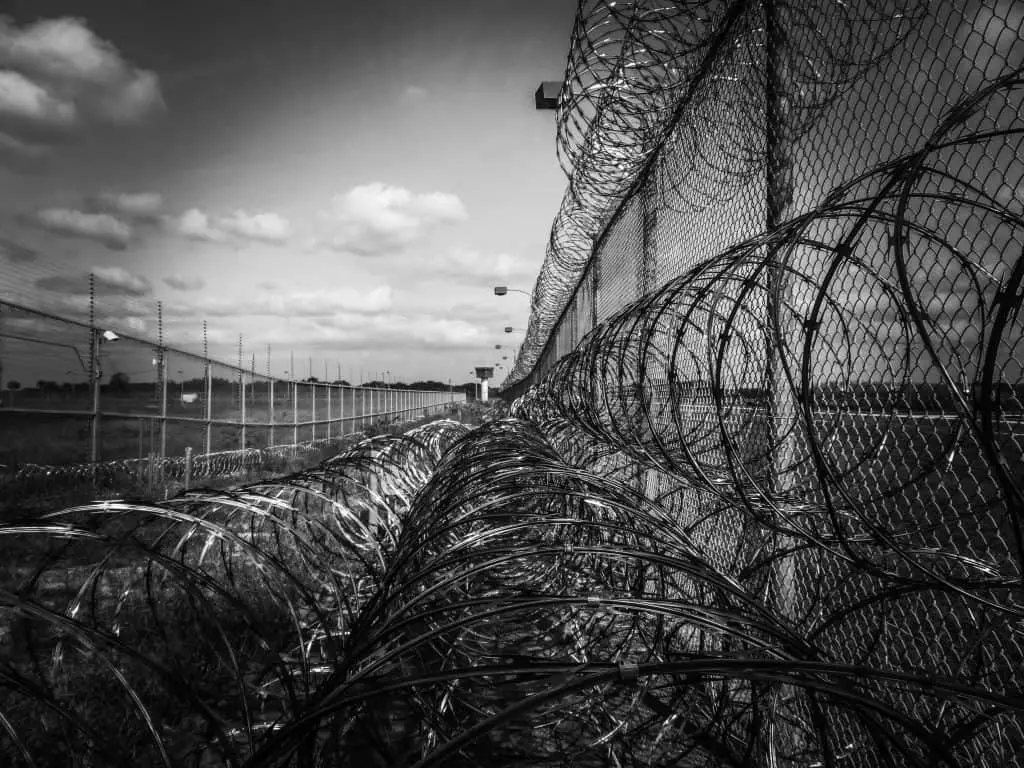
Are Military Police Considered Law Enforcement?
Yes, they are – for the US armed forces. Both military police and conventional Department of Defense (DoD) officers perform similar duties, one of which includes law enforcement. The difference between them is that military police can be deployed abroad and engage in battle, whereas DoD officers cannot.
Is a Judge a Law Enforcement Officer?
No, they are not. While a judge is part and parcel of the US criminal justice system, they do not have the power, nor do they perform the duties of sworn law enforcement or peace officers.
Is Corrections Considered Law Enforcement?
No, it is not. Corrections deal with people who have violated the law and are serving time in a correctional facility. Law enforcement, on the other, hand upholds the laws and arrests those found to be flouting them.
Are Security Officers Considered Law Enforcement?
No, they are not. Their duties involve observing and reporting crime, not enforcing local and state laws.
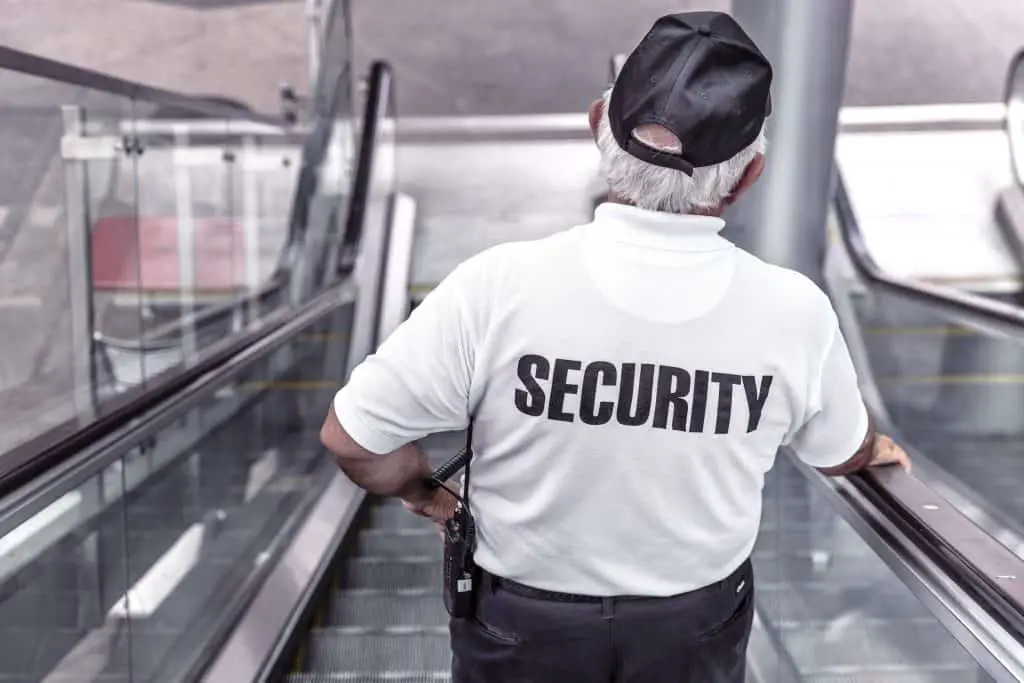
Is Security Officer Considered Law Enforcement?
If you’re one of the many people wondering, “Is a security officer considered law enforcement?” the answer is no. While they may have the authority to protect private property, they do not have the power to enforce the law or arrest people found to be breaking it.
Is a 911 Dispatcher Considered Law Enforcement?
No, they are not. Although some states like Texas classify 911 dispatchers as first responders in emergencies, their primary role is to provide communication support for fire, law enforcement, emergency, and any other related services.

Is Security Guard Considered Law Enforcement?
If you’ve come across security guards, especially those who dress a lot like police officers, you might ask, “is a security guard considered law enforcement?” The answer to this is – no, they are not.
Security guards are responsible for keeping private properties and the people they work for safe from emergency, natural, or criminal hazards. They do not enforce the law.
Are Parole Officers Law Enforcement?
Yes, but only if they’ve attended a police academy. Once they complete their training and receive their certification, they’re sworn in as peace officers. This gives them full police powers in law enforcement.
Are TSA Agents Law Enforcement Officers?
No, they are not. Transportation Security Administration (TSA) officers are responsible for screening passengers and baggage at security check-points, checking cargo and equipment at bus terminals, rail stations, and airports following the Department of Homeland Security guidelines. They do not have any authority to arrest law-breakers.
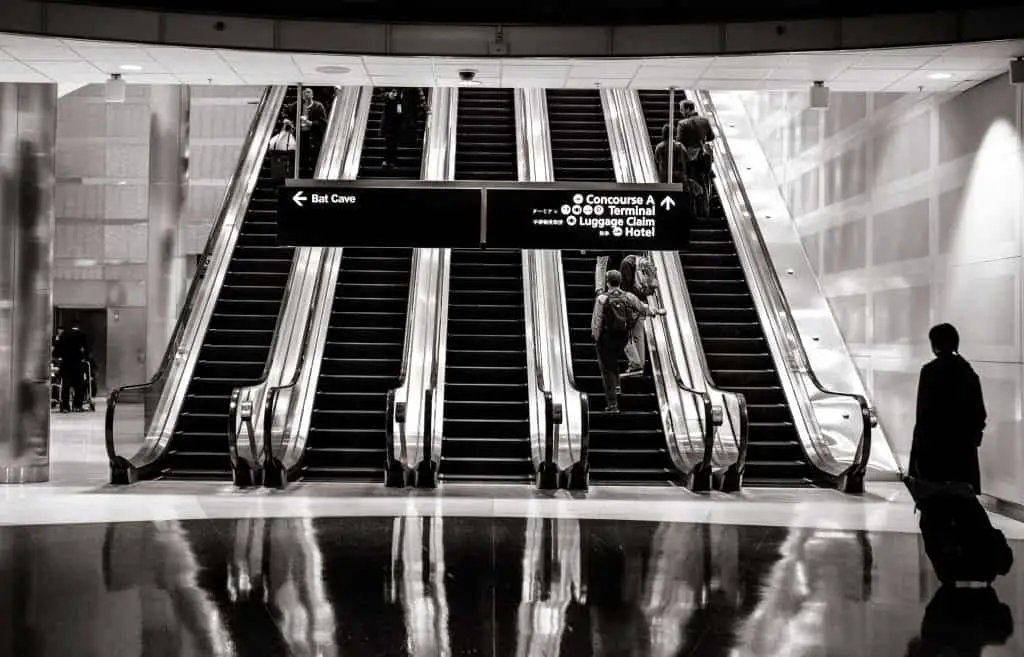
Is Army CID Federal Law Enforcement?
No, it is not. Criminal Investigations special agents are tasked with investigating felony crime allegations leveled against US Army personnel. They are not law enforcement agents.
Is ICE a Law Enforcement Agency?
Yes, it is. The US Immigration and Customs Enforcement (ICE) is a federal law enforcement body under the US Department for Homeland Security. ICE agents are charged with the prevention of illegal immigration and the illegal trafficking of goods across the borders.
